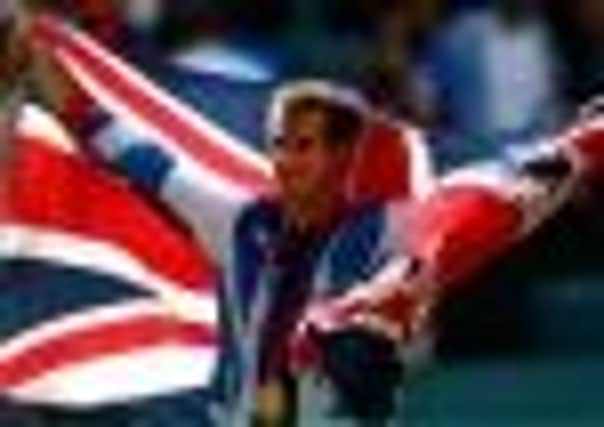Scots to ‘stay in Team GB’ for Rio Olympic Games


Insisting that Scottish athletes benefited “hugely” from being part of a UK-wide set up, Sir Craig Reedie, a vice-president of the International Olympic Committee and former chairman of the British Olympic Association, said it would be “a long way into the future” before IOC approval would be granted to the new country if voters back independence in 2014.
Reedie also claimed that Scottish medallists at the London games, such as rower Katherine Grainger and cyclist Sir Chris Hoy, backed the current set up where they receive funding from UK Sport as part of a British team alongside competitors from England, Wales and Northern Ireland.
Advertisement
Hide AdAdvertisement
Hide AdHe was speaking as the UK Government confirmed that it is to guarantee spending of £125 million a year for the next four years up until the 2016 Rio games to fund elite sport in Britain. Hoy, who was the flag-bearer for Team GB at the 2012 opening ceremony, said last night: “Having these guarantees for the future will be a huge boost for all the athletes aiming to win medals at Rio 2016 and proves we are serious about building a strong legacy from London 2012.”
Reedie is one of the most senior figures in the IOC, having been made a vice-president of the organisation earlier this summer and was chairman of the BOA from 1992 to 2005. His comments appear to send a clear message to Scots competitors now looking ahead to the 2016 Games in Rio that they can plan on remaining part of the Team GB set-up - a blow to the plans of First Minister Alex Salmond, who said prior to the Games in London that an independent Scotland “would compete as an independent nation at the Olympics.” Last night, the Scottish Government insisted the IOC would process Scotland’s application in “a very short time”, and insisted that if Scotland votes for independence, it would be a fully fledged new nation in time for Rio.
But Reedie said that if Scotland opted for independence in 2014, it would have to apply for Olympic status, in the same way as South Sudan – the world’s newest independent nation – is doing at present. However, a long period of negotiations was expected with the UK after any “yes” vote and IOC rules stipulate that Olympic status can only be granted once the new nation is recognised by the international community.
“In my view, whether there is a referendum or not, the independent recognition by the international community will take a lot longer than 2014,” said Reedie. At the moment, they [Scots athletes] have no alternative, and the alternative in my view is a long way in the future.”
He added: “This is a spurious debate until there is full recognition of Scotland being an independent nation. That is the crucial point and until that happens they [Scottish Olympians] are part of the British team and proud to be so.”
Reedie also mounted a staunch defence of Scotland’s involvement in Team GB and questioned whether a separate Scottish set-up would be able to offer elite sportsmen and women from north of the Border the same resources.
He said: “The reality is that the top Scottish athletes benefit hugely from the funding that comes from UK Sport. Speak to Katherine Grainger, or Chris Hoy or [Scots canoeist] David Florence and they will tell you that the present situation works very well and it works to the benefit of Scottish athletes.
“Team GB benefits massively at the moment from funding. That comes from the Exchequer and it comes from the National Lottery and it seems to be unlikely that a much smaller unit would find it easy to match that funding.”
Advertisement
Hide AdAdvertisement
Hide AdThe questions over Scotland’s status in the British team have been highlighted by the performances of some of the medal winning stars during the Games. Grainger won her rowing gold alongside England’s Anna Watkins, while Andy Murray won silver in the tennis mixed doubles alongside Laura Robson, from England. Hoy won two golds at the velodrome - one as part of a three-man team - to take his total to six over three separate Games.
On Reedie’s comments, the Scottish Government pointed to the recent case of Montenegro, which gained IOC recognition a year after becoming independent in 2006 and in time to compete in the Beijing Games of 2008.
A spokesman said: “The IOC is a body with long experience of welcoming new countries within a very short time of them becoming independent, and the process would be similarly straightforward for Scotland following a successful Yes vote in 2014.”
He added: “If Scotland votes Yes, we will be an independent country by the time of Rio 2016. Team Scotland will already have competed in the 2014 Commonwealth Games, and we already have more than the necessary five National Federations which are affiliated to the International Federations that govern sports included in the Olympic Games programme.”